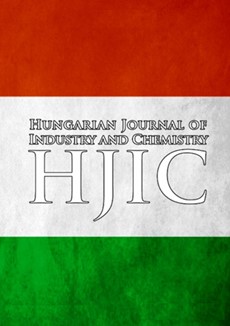An Innovative Approach to Various Industrial Applications: The Fingered Citron
DOI:
https://doi.org/10.33927/hjic-2024-01Keywords:
antimicrobial activity, citrus, cream formulation, probiotic, sun protection factorAbstract
The fingered citron (Citrus medica L. var. sarcodactylis), which originates from India, has spread to different parts of the world over time. In opposition to the increasing resistance to traditional antimicrobial agents, the application of alternative treatments developed using herbs has recently gained interest. The aim of this study is to investigate alternative applications of the fingered citron in the cosmetics and pharmaceutical industries. For this purpose, the antimicrobial activity of fingered citron leaf water extract (FCLWE) against test microorganisms was evaluated using a disk diffusion assay. Minimum inhibitory concentration (MIC) and minimum cidal concentrations (bactericidal - MBC or fungicidal - MFC) of the extract were also determined. For FCLWE, among the pathogenic test microorganisms, Listeria monocytogenes strain ATCC 7644 and Staphylococcus aureus strain ATCC 25923 showed the smallest and the largest inhibition zone diameters, with values of 7.06 and 11.57 mm, respectively. MIC and MBC or MFC values of FCLWE varied from 10 to 40 µg/µl. In addition, the sun protection factors (SPF) of FCLWE and a mixture of FCLWE and commercial sun creams at different concentrations were determined. The SPF value of FCLWE was found to be 25. The mixture of FCLWE and commercial sun cream at an amount of 10 ml yielded an SPF value of 12.26. Next, the biological activity of the cream formulation obtained with commercial cream, FCLWE and Limosilactobacillus fermentum MA-7 (cream-leaf water extract-probiotic - CWP) was investigated against test microorganisms using the well diffusion method. CWP exhibited inhibitory activity against L. monocytogenes ATCC 7644 (2.56 mm), Candida glabrata RSKK 04019 (2.81 mm), C. albicans ATCC 10231 (4.54 mm) and S. aureus ATCC 25923 (5.00 mm). It was observed that the cream formulation of CWP increased the diameters of the inhibition zone by creating a synergistic effect against all pathogenic test microorganisms. FCLWE may potentially be used as an alternative natural additive to chemical preservatives in the cosmetics and pharmaceutical industries.




